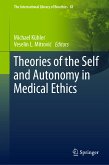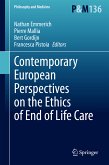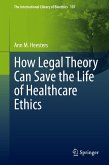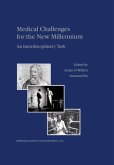This book configures a consistent epistemology of biolaw that distinguishes itself from bioethics and from a mere set of international instruments on the regulation of biomedical practices. Such orthodox intellection has prevented biolaw from being understood as a new branch of law with legally binding force, which has certainly dwindled its epistemological density. Hence, this is a revolutionary book as it seeks to deconstruct the history of biolaw and its oblique epistemologies, which means not accepting perennial axioms, and not seeing paradigms where only anachronism and anomaly still exist. It is a book aimed at validity, but also at solidity because the truth of biolaw has never been told before. In that sense, it is also a revealing text. The book shapes biolaw as an independent and compelling branch of law, with a legally binding scope, which boosts the effectiveness of new deliberative models for legal sciences, as well as it utterly reinforces hermeneutical and epistemological approaches, in tune with the complexity of disturbing legal scenarios created by biomedical sciences' latest applications. This work adeptly addresses the origins of the European biolaw and its connections with American bioethics. It also analyses different biolaw's epistemologies historically developed both in Europe and in the United States, to finally offer a new conception of biolaw as a new branch of law, by exploring its theoretical and practical atmospheres to avoid muddle and uncertainty when applied in biomedical settings. This book is suitable for academics and students of biolaw, law, bioethics, and biomedical research, as well as for professionals in higher education institutions, courts, the biomedical industry, and pharmacological companies.
Dieser Download kann aus rechtlichen Gründen nur mit Rechnungsadresse in A, B, BG, CY, CZ, D, DK, EW, E, FIN, F, GR, HR, H, IRL, I, LT, L, LR, M, NL, PL, P, R, S, SLO, SK ausgeliefert werden.









